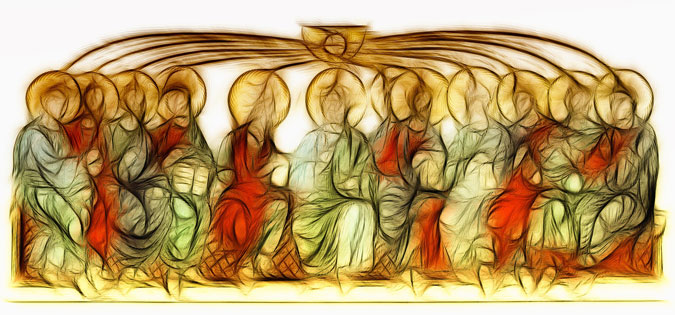 It takes a great deal of slow, careful, thoughtful work to learn a language. First there must be the example of someone fluent in that language who acts as a model. Next, there must be careful listening, repeating of sounds that are foreign, and memorizing words and their unfamiliar nuances. Over time one builds small sentences to convey basic meanings. Months, even years later, one grows in the ability to write and speak sentences to convey ever more complex ideas: from “I like you” to “Shall I compare thee to a summer’s day?”
It takes a great deal of slow, careful, thoughtful work to learn a language. First there must be the example of someone fluent in that language who acts as a model. Next, there must be careful listening, repeating of sounds that are foreign, and memorizing words and their unfamiliar nuances. Over time one builds small sentences to convey basic meanings. Months, even years later, one grows in the ability to write and speak sentences to convey ever more complex ideas: from “I like you” to “Shall I compare thee to a summer’s day?”
We live in an age that suggests that the strictures of church distract one from the spiritual life—that church is all about rules, and spirituality is all about life and love. That opinion is wrong. Church—by which I mean the community of people rooted in a history of worshiping God—is indeed governed by rules, but so is language, and both take hard work to master. But the mastery, the virtuosity, the poetry, is liberating in its beauty. Immersion in the life of the Church is an immersion in the life of Christ writ large over human history. It demands careful learning. For that reason, early Christians designated the period known as the catechumenate as a many-years-long initiation into the life of the Church. Learn the grammar of the Church’s life, its wisdom went, and you will be free. God is there in the unknowing; God is there in the learning; God is there in the deepening of wisdom, the poetry of the Church’s life.

“God is there in the unknowing; God is there in the learning; God is there in the deepening wisdom, the poetry of the Church’s life.” This portion of your post has been in my head since I read it yesterday morning. There is something deeply comforting and encouraging about your words, Tim, material for contemplation and prayer. Thank you for this gift.
Superb insight. As someone who has tried to learn several different languages, both living and dead, I love this analogy. All good things take work. And lots of it.
I’ve never seen it looked at in this perspective. Thank you for sharing.
Thanks for your good thoughts, Dr. Muldoon. Your blog caught my eye on an RSS feed when I came home from Mass tonight. Coincidentally, I had decided to be brave and go to the Mass in Spanish. Recently coming back to the Church after being away since a young adult, I’m needing to learn the “grammar of the Church’s life.” Plus, on top of that, I’m needing to learn Spanish if I want to communicate with the priest, who recently arrived from Colombia! I came away from that experience feeling humbled (because I thought I knew more Spanish than I did) and a little discouraged. Thanks for pointing out that learning the catechism and learning a language are going to take hard work!